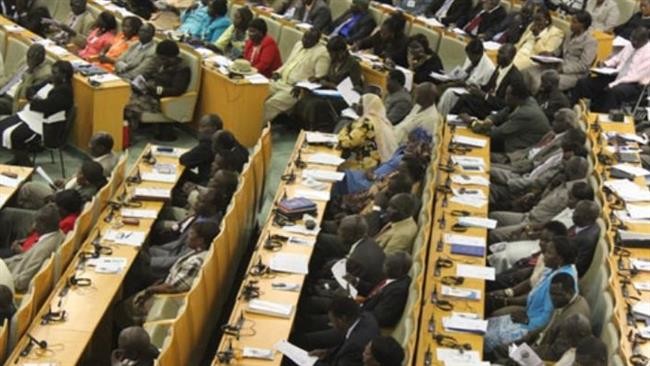The Chairman of the Information Committee in South Sudan’s National Assembly, Thomas Wani Kundu, says that the National Security Service Bill has not become law, contradicting the justice minister who claimed it had become operational.
Justice Minister Paulino Wanawilla declared in a letter dated 25 February that the bill “has become an operational law.” He reasoned that parliament passed the bill in October and the president waited more than 30 days without objecting to the bill.
“Article 85(1) of the Transitional Constitution, 2011, provides that a bill becomes law when the President assents to it by signature or withholds such assent for thirty days without giving reasons,” the minister explained.
However, MP Thomas says the president objected to the bill before the 30 day window expired and hence the bill was stopped from becoming law. Others have claimed that the bill was never enacted by parliament at all because the parliament lacked quorum when it voted on the bill in October 2014.
In a recent interview with Radio Miraya, MP Thomas said that as far as his committee is concerned, they are still waiting for the bill to be presented for debate.
Both the Parliament Information Committee Chairman and Presidential Press Secretary Ateny Wek have said that parliament submitted the bill to the Office of the President on 21 November 2014. The 30-day window should be counted from that date and not from the date of passage by parliament, they say.
In that case, the president’s observations on the bill were made prior to the expiry of the 30 allowable days.
“Mathematically from 21 November 2014 to 19th December 2014 is exactly 29 days,” said MP Thomas Wani.
“Then we expect the bill to be presented in the house for deliberation when we open in 2015, we open on the 7th of April, the President will open the assembly with a speech then a week after we expect the bill to be presented before the house with considerations from the Office of the President for us to consider.”
But the chairman of the parliamentary security committee contradicted Thomas, saying the bill has become law.
MP Samuel Duwar Deng said, “When the president sent back the bill to the parliament, the bill had already spent 33 days in his office. So when the technical team in the parliament sat from the committee of legislature and justice and the security committee, we found that the bill had already come into law and we could not do anything about it. So we advised the speaker that the bill has already become law.”
These comments reflect a continuing split in the SPLM over the security bill. When the bill was voted on 8 October 2014, the ruling party caucus was deeply split along ethnic lines, with Dinka MPs supporting the motion while Equatorian MPs mostly boycotted the vote.
A group of Equatorian MPs walked out of the assembly hall before the bill was voted unanimously as an oral motion. Afterwards the clerk of the assembly failed to produce a written record of attendance to prove a quorum.
Related:
Kiir loyalists declare security bill to be law (16 March)
Kiir ‘returns’ his own security bill to parliament 69 days after controversial vote (22 Dec.)
Kiir to try again to pass his security bill (27 Nov.)




